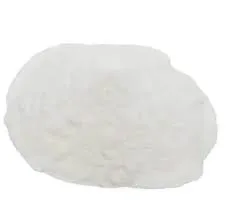
aug. . 09, 2024 06:55 Back to list
Exploring the Benefits and Applications of Mortar Bonding Agents for Enhanced Construction Performance
Understanding Mortar Bonding Agents Enhancing Adhesion in Construction
Mortar bonding agents play a crucial role in modern construction and masonry projects, enhancing the adhesion between different materials. These agents are formulated to improve the interface between mortar and substrates, ensuring a durable and long-lasting bond. In this article, we will explore the significance, types, applications, and benefits of mortar bonding agents.
What Are Mortar Bonding Agents?
Mortar bonding agents are additives or products used to increase the bonding efficiency of mortar, cement, or concrete. They are designed to be mixed with the mortar before application or applied directly to the surface that requires better adhesion. Traditionally, mortars were mixed only with water, which sometimes led to weak bonds when applied to certain substrates. With the advent of bonding agents, construction professionals now have a reliable means of enhancing adhesion properties.
Types of Mortar Bonding Agents
There are various types of mortar bonding agents available on the market, tailored to meet different construction needs
1. Synthetic Polymer Emulsions These are among the most common bonding agents. They consist of a latex or acrylic polymer that, when mixed with mortar, improves flexibility, adhesion, and resistance to water.
2. Cement-Based Bonding Agents These products are composed of a blend of cement and polymer additives. They provide a robust bond for applications like tile setting and stucco work.
3. Liquid Bonding Agents These are typically ready-to-use solutions applied directly to surfaces before the mortar is laid. They are easy to use and can significantly improve bond strength.
4. Epoxy-Based Bonding Agents Known for their exceptional adhesion properties, epoxy bonding agents are used in demanding applications, particularly where high strength and resistance to moisture or chemicals are required.
Applications of Mortar Bonding Agents
Mortar bonding agents are versatile and can be used in various construction scenarios
- Tile Installation They enhance the bond between tiles and substrates, reducing the risk of tile lifting or cracking over time
.mortar bonding agent

- Repair Work In projects where new mortar needs to be applied over existing surfaces, bonding agents ensure a strong interface, improving the longevity and stability of repairs.
- Masonry Construction They are commonly used between brick, stone, and concrete blocks to ensure stability and structural integrity.
- Plaster Applications When applying plaster over concrete or masonry, bonding agents help improve adhesion, preventing issues such as peeling or cracking.
Benefits of Using Mortar Bonding Agents
Using mortar bonding agents offers several advantages that can significantly impact construction quality and efficiency
1. Enhanced Adhesion The primary benefit is the improved bonding strength that bonding agents provide, resulting in safer and more durable structures.
2. Reduced Water Absorption Many bonding agents reduce the porosity of the substrate, minimizing water absorption, which is crucial in areas exposed to moisture.
3. Flexibility and Durability Polymer-based agents add flexibility to the mortar, allowing for better performance under movement and temperature changes, which is essential for long-lasting joints.
4. Time Efficiency By ensuring a strong bond, these agents can reduce the need for extensive rework, leading to time savings in construction projects.
5. Cost-Effectiveness While there is an initial investment in bonding agents, the benefits gained in durability and reduced maintenance costs often outweigh the costs.
Conclusion
In summary, mortar bonding agents are an integral part of modern construction, providing enhanced bonding capabilities that contribute to the strength and durability of structures. Their application spans a wide range of projects, from small repairs to large-scale constructions, making them essential tools for builders and contractors. By leveraging the advantages of mortar bonding agents, the construction industry can ensure higher quality work and longer-lasting results.
-
Unlocking the Benefits of HPMC Products: A Gateway to Versatile Applications
NewsAug.07,2025
-
Unleashing the Potential of HPMC Ashland: A Comprehensive Look
NewsAug.07,2025
-
Tile Bonding Cellulose: The Key to Superior Adhesion and Durability
NewsAug.07,2025
-
Hydroxypropyl Methylcellulose Powder: The Versatile Component in Modern Pharmaceuticals
NewsAug.07,2025
-
Hydroxyethyl Cellulose: The Versatile Solution for Various Industries
NewsAug.07,2025
-
Hydroxyethyl Cellulose (HEC): The Versatile Polymer for Various Applications
NewsAug.07,2025







